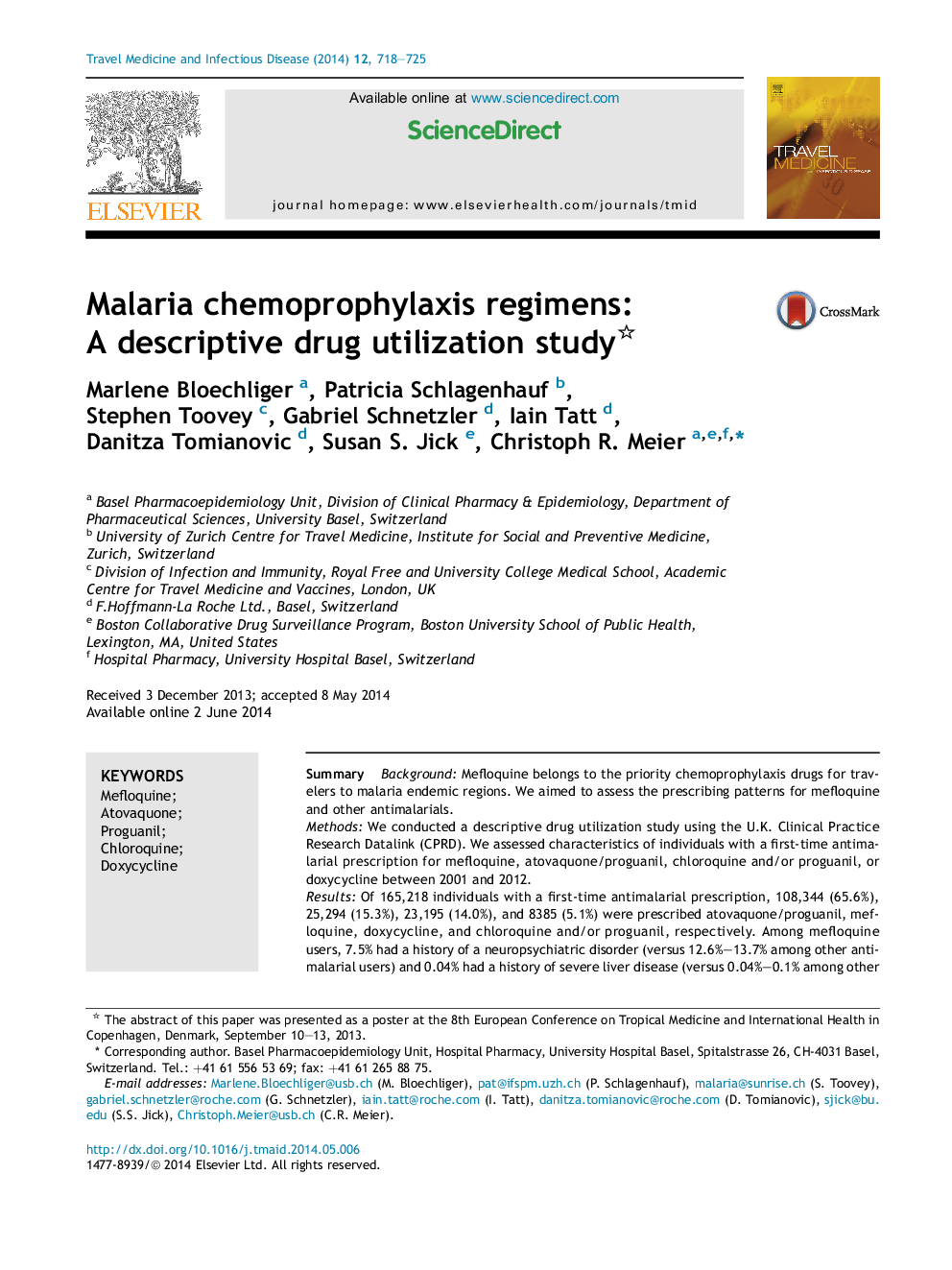| Article ID | Journal | Published Year | Pages | File Type |
|---|---|---|---|---|
| 3392984 | Travel Medicine and Infectious Disease | 2014 | 8 Pages |
SummaryBackgroundMefloquine belongs to the priority chemoprophylaxis drugs for travelers to malaria endemic regions. We aimed to assess the prescribing patterns for mefloquine and other antimalarials.MethodsWe conducted a descriptive drug utilization study using the U.K. Clinical Practice Research Datalink (CPRD). We assessed characteristics of individuals with a first-time antimalarial prescription for mefloquine, atovaquone/proguanil, chloroquine and/or proguanil, or doxycycline between 2001 and 2012.ResultsOf 165,218 individuals with a first-time antimalarial prescription, 108,344 (65.6%), 25,294 (15.3%), 23,195 (14.0%), and 8385 (5.1%) were prescribed atovaquone/proguanil, mefloquine, doxycycline, and chloroquine and/or proguanil, respectively. Among mefloquine users, 7.5% had a history of a neuropsychiatric disorder (versus 12.6%–13.7% among other antimalarial users) and 0.04% had a history of severe liver disease (versus 0.04%–0.1% among other antimalarial users). A total of 19.4% mefloquine users were children younger than 12 years (versus 0.4%–15.8% among other antimalarials), and 1.3% pregnant or postpartum women (versus 0.4%–1.4% among users of other antimalarials).ConclusionsThe most frequently prescribed antimalarial chemoprophylaxis was atovaquone/proguanil. Mefloquine was occasionally prescribed for patients with comorbidities listed as contraindications, but most practitioners observed contraindications. Mefloquine was often prescribed for children and pregnant women.
